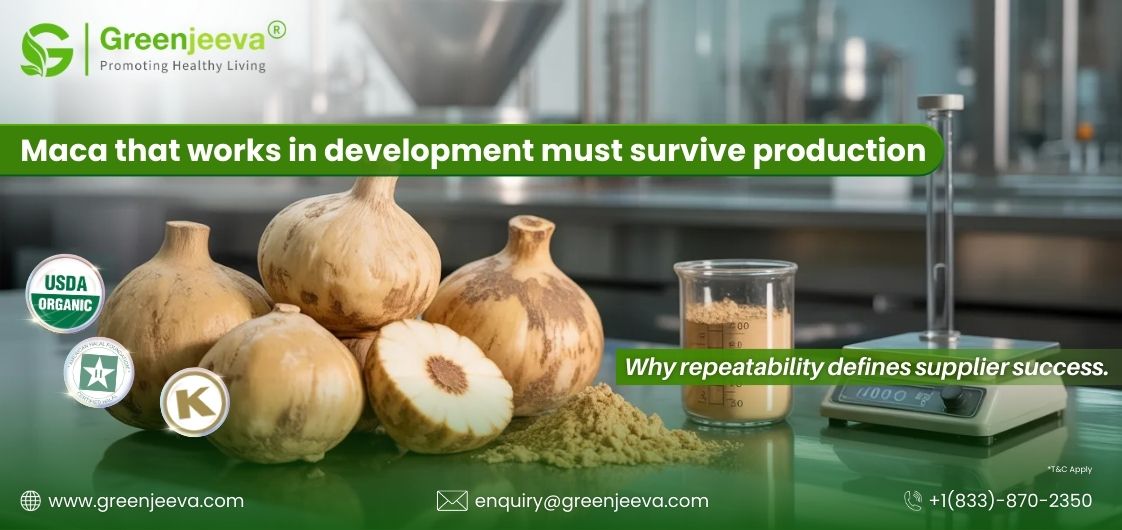Sourcing Challenges for Natural Sweeteners: Challenges and Solutions

The food and beverage industry has a growing demand for healthier alternatives to traditional sweeteners. Sourcing teams face unique challenges when procuring high-quality natural sweeteners to meet consumer preferences. In this B2B blog, we delve into the sourcing challenges for natural sweeteners, these teams face and provide insights on overcoming them to ensure a reliable and diverse supply for a healthier future.
Understanding Consumer Demands and Market Trends
Sourcing teams must navigate the ever-evolving landscape of consumer demands and market trends in the natural sweetener industry. Staying informed about the preferences of health-conscious consumers and emerging sweeteners is crucial. Thorough research, market analysis, and collaboration with suppliers can help sourcing teams identify and procure in-demand natural sweeteners that align with consumer preferences.
Ensuring Quality and Sustainability
control and sustainability are paramount when sourcing natural sweeteners. Sourcing teams must establish partnerships with trusted suppliers who adhere to strict quality standards, provide certifications, and prioritize sustainable farming and extraction practices. Thorough supplier vetting, transparency, and traceability are essential to ensure a reliable supply chain of high-quality natural sweeteners.
Managing Supply Chain Risks and Seasonal Variations
Seasonal variations and geographical factors can affect the availability of certain natural sweeteners. Sourcing teams must proactively manage supply chain risks by developing contingency plans, establishing relationships with multiple suppliers, and closely monitoring market trends. By diversifying sourcing channels and adapting to seasonal variations, teams can ensure a consistent supply of natural sweeteners.
Navigating Regulatory Compliance
Compliance with regulatory standards and certifications is critical in sourcing natural sweeteners. Sourcing teams must stay updated on the relevant regulations and certificates specific to natural sweeteners. Collaborating with suppliers who commit to quality, compliance, and transparency is essential to mitigate risks associated with non-compliant products and ensure the delivery of safe and compliant natural sweeteners.
Building Strong Supplier Relationships and Collaboration
Building strong relationships with suppliers and fostering collaboration is key to overcoming sourcing challenges in this industry. Sourcing teams can work closely with suppliers to ensure product consistency, discuss market demands, and explore new sweetener options. By fostering collaboration and innovation, sourcing teams can stay ahead of the competition. This in turn would help offer unique natural sweetener solutions to their customers.
Exploring a Variety of Natural Sweeteners: Overcoming Sourcing Challenges
Sourcing teams face unique challenges in procuring diverse natural sweeteners for various food and beverage applications. Let's delve into the details of different sweetening options and how sourcing teams navigate the complexities to meet consumer demands.
Stevia Leaf Extract Powder: Sourcing teams must navigate the challenges of sourcing Stevia leaf extract powder. A natural sweetener derived from the Stevia rebaudiana plant. This ingredient offers intense sweetness without calories or impact on blood sugar levels.
Monk Fruit Extract Powder: Sourcing teams face the challenge of finding suppliers of Monk Fruit extract powder derived from the fruit of the Siraitia grosvenorii plant. This natural sweetener provides a pleasant taste without the calories or impact on blood sugar levels.
Birch Xylitol: Sourcing teams face the challenge of finding reliable sources of birch xylitol, a natural sugar alcohol derived from birch tree bark. This sweetener is famous for its resemblance to sugar taste and tooth-friendly properties.
Erythritol: Erythritol, a sugar alcohol, poses challenges for sourcing teams due to variations in quality and availability. This natural sweetener provides sweetness without calories and has a low impact on blood sugar levels.
Lucuma Powder: Lucuma powder, derived from the Lucuma fruit, poses challenges for sourcing teams due to its limited availability and specific sourcing regions. This natural sweetener offers a unique flavor profile with hints of maple and sweet potato.
Mesquite Powder: Sourcing teams must find trusted suppliers of mesquite powder made from ground mesquite pods. Valued for its low glycemic index, this natural sweetener offers a sweet and nutty flavor.
Inulin Powder: Inulin powder, derived from chicory root or other plant sources, poses challenges for sourcing teams due to variations in quality and sourcing regions. This natural sweetener has prebiotic properties and is commonly used as a functional ingredient.
Licorice Root Extract Powder: Sourcing teams must navigate the challenges of sourcing licorice root extract powder derived from the Glycyrrhiza glabra plant. This natural sweetener provides a distinct flavor and is used in various confectionery and herbal products.
Glycyrrhizin Powder: Glycyrrhizin powder, derived from licorice root, poses challenges for sourcing teams due to variations in quality and sourcing regions. This natural sweetener is known for its intense sweetness and potential health benefits.
Maltitol Syrup: Maltitol syrup, sugar alcohol, presents challenges for sourcing teams due to variations in quality and availability. This natural sweetener is commonly used as a sugar substitute and has a similar taste and texture.
Panela Sugar: Panela sugar, also known as rapadura or piloncillo, presents challenges for sourcing teams due to variations in quality and sourcing regions. This unrefined cane sugar offers a unique flavor and retains more natural molasses and minerals.
Agave Inulin: Sourcing teams must ensure the reliable sourcing of agave inulin, a natural sweetener and prebiotic fiber derived from the Agave tequilana plant. This ingredient offers a mild sweetness and promotes digestive health.
Yacon Powder: Sourcing teams must secure reliable sources of yacon powder. Yacon powder is made from the root of the Yacon plant. Various food products use this natural sweetener as a sugar substitute due to its prebiotic properties.
Also read: https://www.greenjeeva.com/blog/sourcing-challenges-in-collagen-boosting-product-formulations
Natural Sweetener: The Way Forward
Sourcing high-quality natural sweeteners presents unique challenges for sourcing teams in the food and beverage industry. These teams can successfully navigate the sourcing landscape by understanding consumer demands. Ensuring quality and sustainability, managing supply chain risks, navigating regulatory compliance, and fostering supplier relationships and collaboration is critical. Collaborating with trusted suppliers, conducting thorough research, and prioritizing transparency and quality assurance are essential steps. It ensures a reliable supply of diverse natural sweeteners that meet the demands of health-conscious consumers and drive business growth in the evolving market.
**The Food and Drug Administration has not evaluated these statements. This product is not intended to diagnose, treat, cure, or prevent any disease.**


.jpg)



